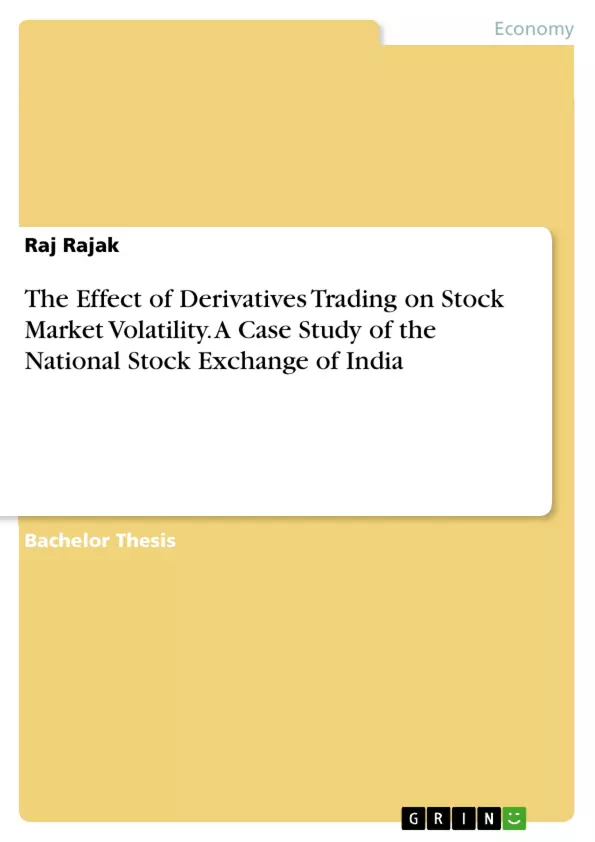This research investigates the relationship between derivatives trading and stock market volatility on the National Stock Exchange (NSE) of India, particularly focusing on the pre- and post-Futures and Options (F&O) period. Derivatives are crucial tools for managing risk in securities trading, and their role in reshaping the Indian capital markets cannot be understated. While derivatives offer opportunities for risk management and speculation, their impact on market volatility remains debated. The introduction of the F&O segment in 2000 marked a significant milestone, leading to the proliferation of sophisticated financial products and increased market participation. This study aims to analyze how derivatives trading has influenced stock market volatility dynamics on the NSE, shedding light on its implications for investors, policymakers, and market efficiency.
Inhaltsverzeichnis (Table of Contents)
- Introduction
- Historical Context and Evolution of Derivative Trading
- Introduction to the Stock Market
- Understanding Derivatives in Context of the Stock Market
- Importance of effect of derivative trading on pre- and post-F&O stock market
- ERP Adoption in the Industry
- Review of Literature
- Research Design
- Analysis and Interpretation
- Summary Of Findings
- Findings of the study
- Summary of Research
Zielsetzung und Themenschwerpunkte (Objectives and Key Themes)
This dissertation project aims to investigate the effect of derivative trading on pre- and post-F&O stock market volatility using the NSE in India as a case study. The research seeks to understand the impact of derivatives on market risk and liquidity.
- Impact of derivative trading on stock market volatility.
- Relationship between derivatives and risk management in the stock market.
- Analysis of the role of derivatives in enhancing market liquidity.
- Examination of the historical context and evolution of derivative trading.
- Assessment of the NSE's role in the Indian derivatives market.
Zusammenfassung der Kapitel (Chapter Summaries)
Chapter 1: Introduction provides an overview of derivative trading, its historical context, and its relevance to stock market volatility. It introduces the NSE and the concept of derivatives within the stock market.
Chapter 2: Review of Literature presents a summary of existing research on the topic of derivative trading and its impact on market volatility.
Chapter 3: Research Design details the methodology employed in the study, including data collection and analysis techniques.
Chapter 4: Analysis and Interpretation presents the findings of the empirical analysis conducted on the effect of derivative trading on stock market volatility.
Chapter 5: Summary of Findings summarizes the key findings of the study.
Schlüsselwörter (Keywords)
Derivative trading, stock market volatility, NSE (National Stock Exchange of India), F&O (Futures and Options), risk management, market liquidity, empirical research, India.
- Citar trabajo
- Raj Rajak (Autor), 2024, The Effect of Derivatives Trading on Stock Market Volatility. A Case Study of the National Stock Exchange of India, Múnich, GRIN Verlag, https://www.grin.com/document/1469234



